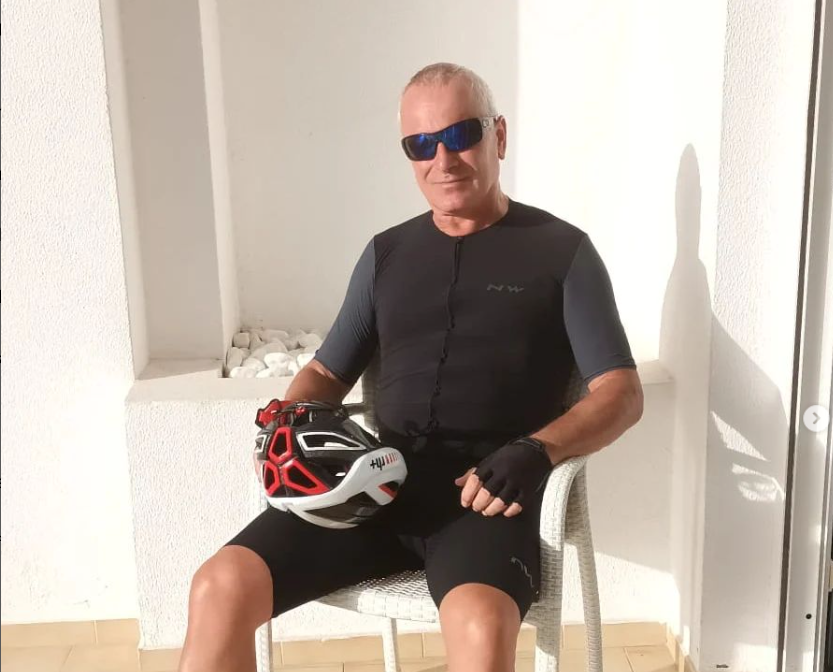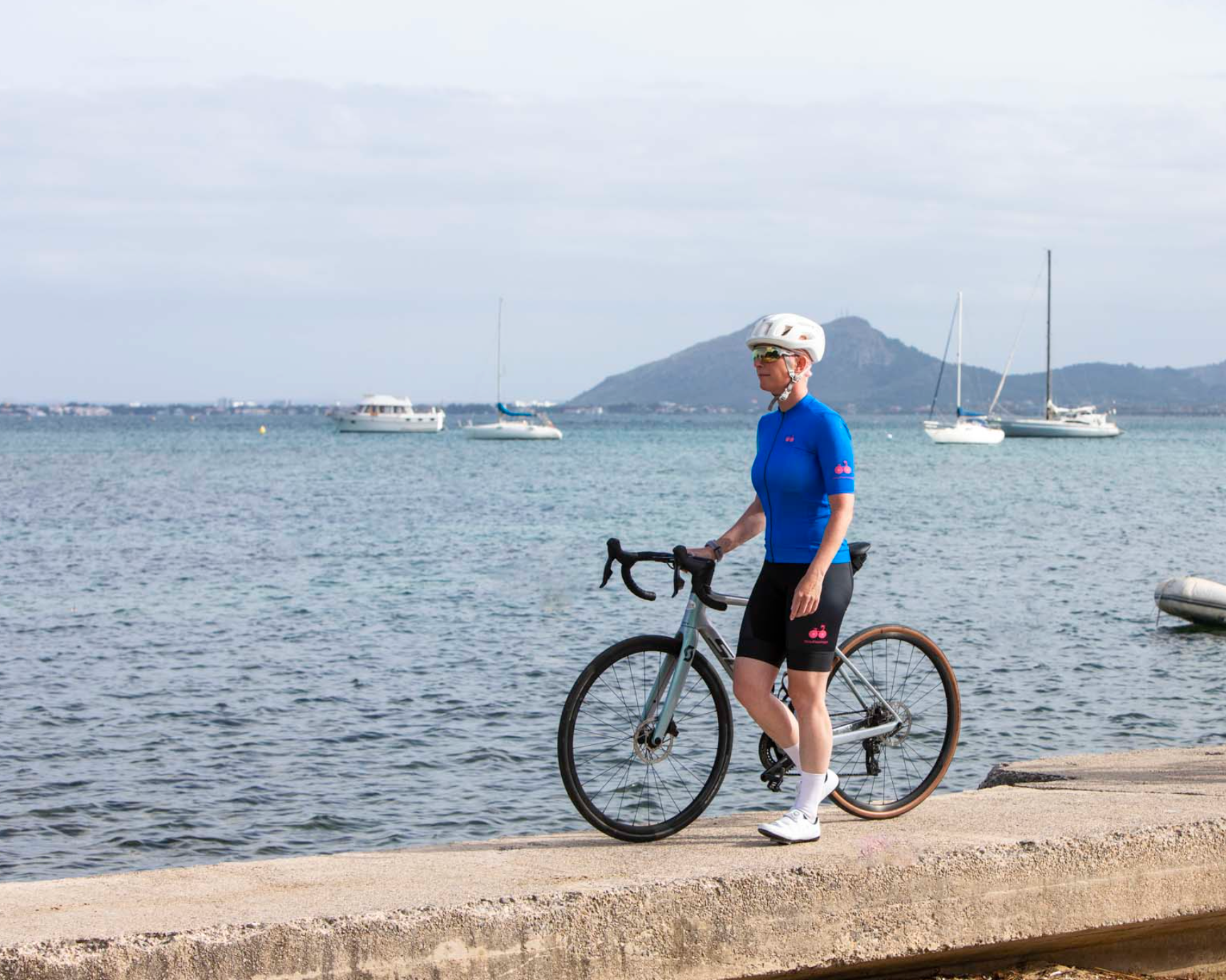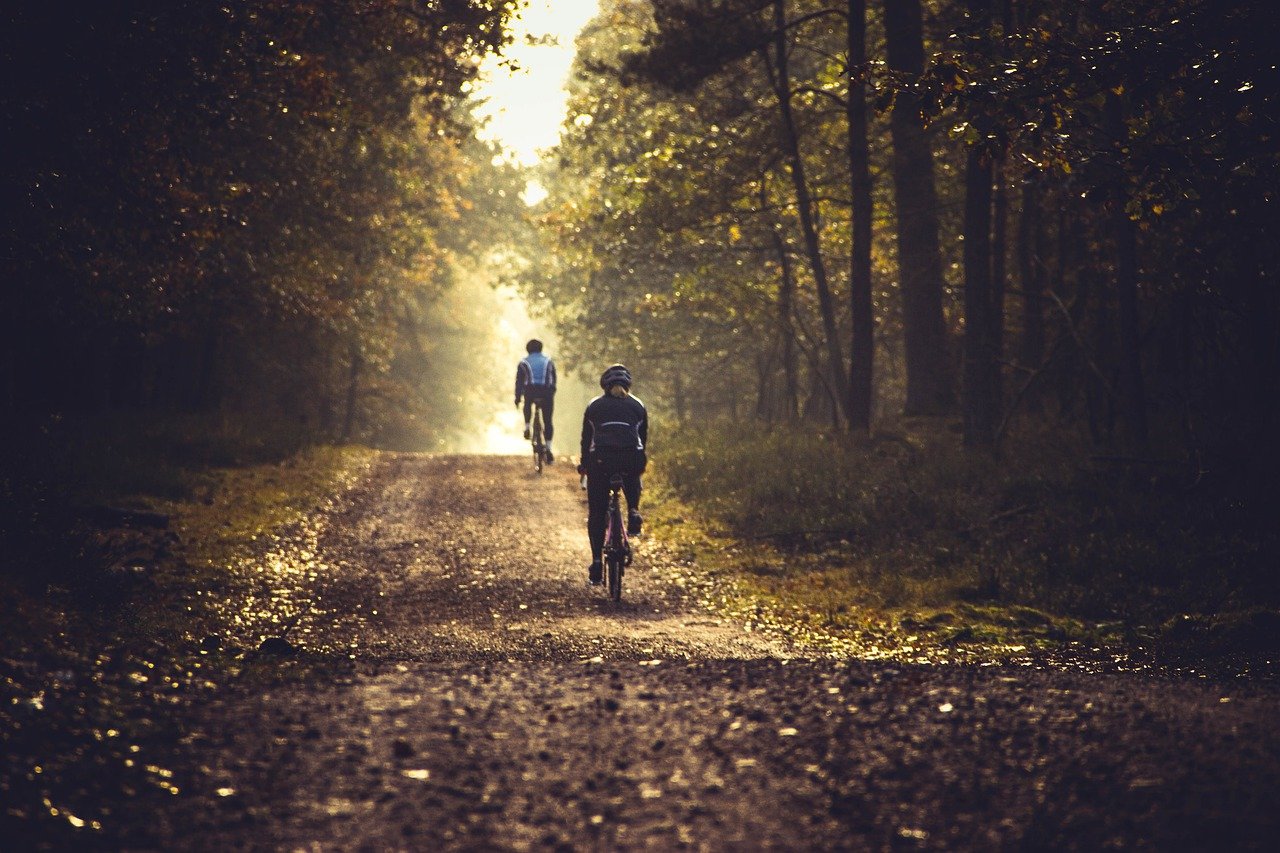Cycling can increase flexibility and strength and it can also do wonders for joint mobility along with being good for your mental health.
It has been proven to help combat depression and to reduce stress. It’s also a sport you can enjoy with your mates that isn’t competitive (or can be as competitive as you like!).
That said - cycling is only one form of fitness and today, we chat to Hugh Byrne, strength and conditioning coach. Hugh is also the track cycling coach at Sundrive Velodrome here in Dublin, where I train.
Hugh, thanks so much for taking some time out and answering a few questions for us!
VF: If someone was looking to purchase a few small pieces of weights/equipment to use at home, what would you suggest for them?
HB: The absolute basic would be a 8-12kg Kettlebell (KB), 35mm Exercise Band, and a medium strength mini loop knee band. There are many KB specific exercises, but primarily I would use it for a Front Loaded Squat as this amount of weight encourages good depth and form and of course makes the exercise more challenging. I would also use it to load a Single Leg Bulgarian Split Squat but this is an exercise which is challenging even without weight when working to proper form.
The 35mm bands I use stretched overhead as I squat, or pressed overhead anchored by my feet. Mini bands are great used above knees when squatting and encourage good form as knees press against them activating the Glute Medius. All these exercises are superb in their own right but do a great job in getting you ready to take gym or home gym to the next level when you progress to squat properly.
Next level of course is an Olympic Bar and Squat Rack. A 20kg Bar costs approx. 100 euro, a space efficient home squat rack be purchased for around the same price but weights are the expensive bit. If you are going down this road, buy a 7 foot bar and weights with 4 inch holes. Squat, however, is something that needs to be taught by a professional and never attempt deadlifts without proper tuition!
VE: When it comes to training for a leisure sportive, what sort of exercises would you suggest to help a cyclist increase their baseline speed?
HB: Straight weight training doesn’t make you faster for a sportive, although it does make you stronger and everyone should do load bearing exercises for good bone health. If you want to increase baseline speed then you need to do the miles on the road, but you also need to become a more efficient pedaller and nothing improves pedalling technique like rollers. Tricky at first to learn but they pay dividends.
One tip about rollers is always pump your tyres to the same pressure especially if you are comparing sessions. There are multiple sessions you can do but a session should be under an hour. One simple session would be 10 minutes warming up on the small ring then 5 x 4 minutes on the big ring with 2 minutes between each effort on the small ring. The trick with this one is to maintain the same cadence for both the 4 minute effort and the 2 minute active recovery so gear selection is crucial – nothing too mental – all efforts should be difficult but achievable!
VF: Finally, any little nutrition tips you could share with our readers?
HB: I would highly recommend that anybody attempting to achieve a training goal first reads up a little on nutrition as lack of basic knowledge here is where people often fall down. At its very basic, carbohydrates are your body's first choice in the production of energy for moderate to intense exercise. Carbohydrates are stored as Glycogen but the body has a limited ability to store this and we will be accessing it mainly from what we have eaten the previous day.
Breakfast is ultra-important as this is the source from which this glycogen will be replaced once we start, say a long ride, so obviously breakfast must consist of mostly carbs. I would say that for anything longer than 90 minutes you would also need to be fuelling as you go and what you need here is a carbohydrate drink to keep replenishing stores. I personally don’t believe in Zero Tabs on a ride as they simply replenish electrolytes but don’t refuel energy stores. There is a place for them, pre or post ride but during, it’s definitely a carb drink.
For an extra-long day, or harder intensity I would take a Gel (not a caffeine one though) maybe after 2 hours. As with all nutrition you need to take it on board before you need it! Bananas are of course super as they give a slower energy release. I also find ‘Elevenses’ superb to have in your back pocket. Try not to come back from a ride with full or partially full bottles – you brought them for a reason and failure to hydrate severely impacts performance.
If you’d like to connect with Hugh, he’s on Instagram. Go on, drop him a Follow!


